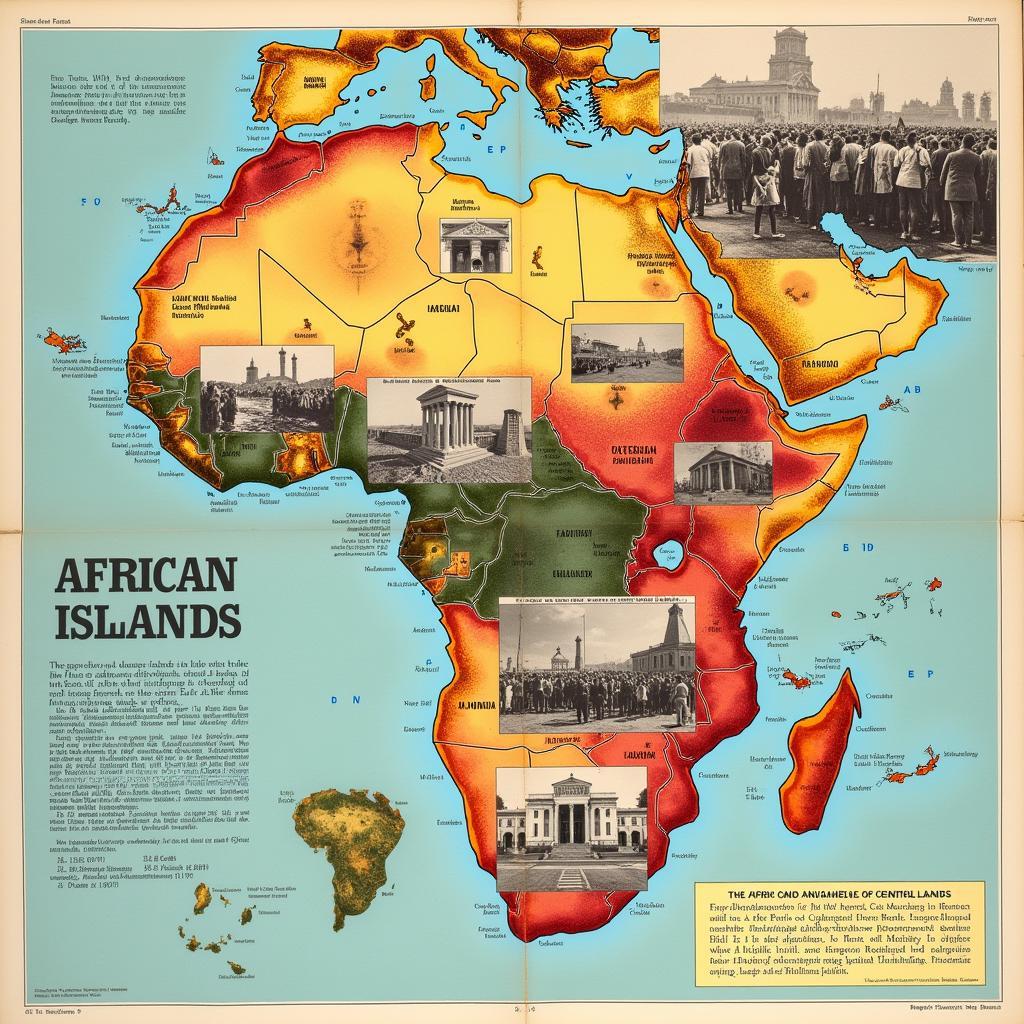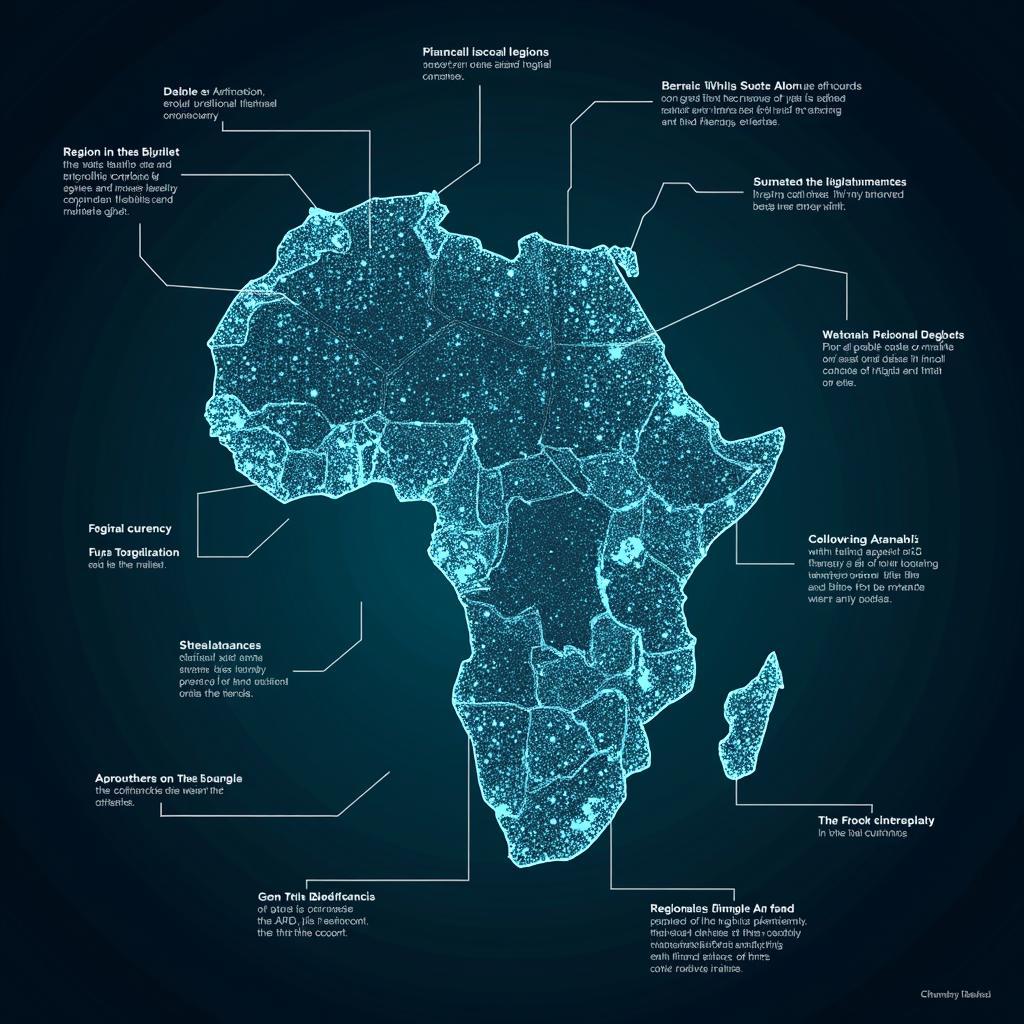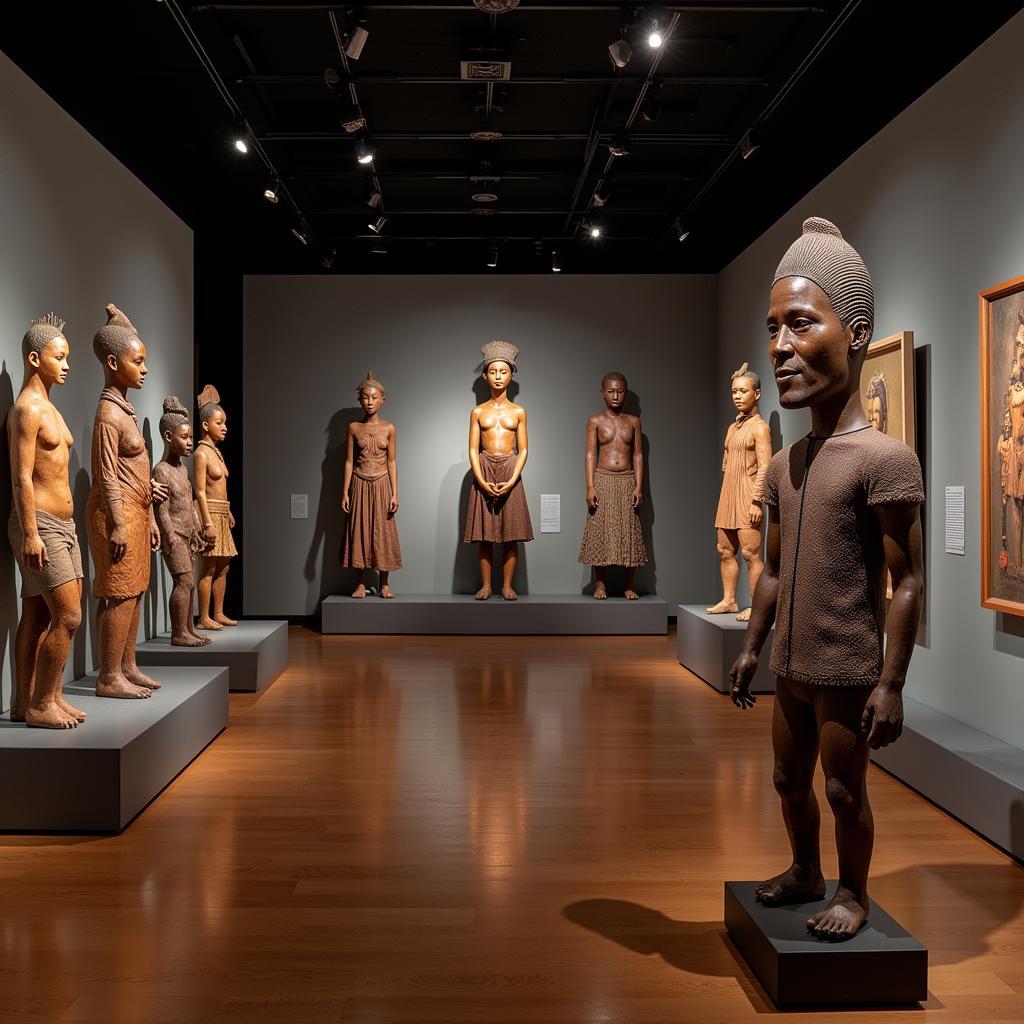Exploring African Island Currency: A Unique Blend of Culture and Finance
African Island Currency offers a fascinating glimpse into the diverse economies and histories of these unique island nations. From the vibrant shores of Cape Verde to the exotic spice markets of Zanzibar, each currency tells a story of trade, colonialism, and independence. Let’s delve into the intricate world of African island currency and discover what makes each one so special.
The History and Evolution of African Island Currency
The currencies of African islands have been shaped by a complex interplay of historical forces. Many islands were initially colonized by European powers, leading to the adoption of currencies tied to the colonizer’s monetary system. For instance, the Cape Verdean escudo was initially pegged to the Portuguese escudo. As these islands gained independence, their currencies evolved, reflecting their newfound sovereignty and economic aspirations. This transition often involved the creation of central banks and the issuance of new banknotes and coins bearing national symbols and imagery.
 Historical influences on African island currency
Historical influences on African island currency
Understanding the Different Currencies
Several distinct currencies are used across the African islands. Each has its own unique characteristics and exchange rates. Some, like the Seychellois rupee, are relatively stable and widely traded, while others, like the São Tomé and Príncipe dobra, have faced economic challenges. Understanding these differences is crucial for anyone traveling or doing business in the region. It’s also important to be aware of the best practices for exchanging currency, which may vary depending on the specific island you’re visiting. For example, you might find valuable travel tips if you’re researching African beaches to visit.
17 west african countries and their capitals
What are the most common African island currencies?
Some of the most common currencies include the Cape Verdean escudo (CVE), the São Tomé and Príncipe dobra (STD), the Comorian franc (KMF), the Seychellois rupee (SCR), and the Mauritian rupee (MUR).
How do exchange rates fluctuate?
Exchange rates can fluctuate based on a variety of factors including global economic conditions, political stability, and tourism.
Where can I exchange currency?
Currency exchange services are typically available at banks, airports, and hotels.
The Impact of Tourism and Trade on African Island Currency
Tourism plays a significant role in the economies of many African islands, and this influence extends to their currencies. The influx of foreign visitors often strengthens the local currency, making it more valuable against other currencies. Similarly, trade relationships with other countries can impact the stability and value of an island’s currency. african island pretoria provides more information about this topic. Navigating these intricacies requires an understanding of the local economic landscape. “Understanding the local context is key to appreciating the value and significance of each currency,” says Dr. Adebayo Olúṣẹ́gun, a renowned economist specializing in African financial markets. His expertise sheds light on the importance of cultural and historical factors in shaping these island economies.
african island contact details
The Future of African Island Currencies
As the global economy evolves, so too will the currencies of African islands. Factors like digital currencies and regional economic integration are likely to play a significant role in shaping the future of these monetary systems. “The increasing adoption of mobile money across Africa could revolutionize how transactions are conducted on these islands,” notes Dr. Fatima Mbaye, an expert on African fintech. This perspective highlights the potential for innovation and transformation in the realm of African island currency. african countries and their capitals download might provide further insights into this dynamic landscape.
 Future trends and challenges for African island currency
Future trends and challenges for African island currency
In conclusion, African island currency offers a rich tapestry of history, culture, and economic dynamics. Understanding these unique monetary systems is vital for appreciating the diverse landscape of these island nations. From their colonial past to their future in the globalized world, African island currencies will continue to evolve, reflecting the resilience and adaptability of these remarkable communities.
FAQ
- What is the most stable African island currency?
- How can I exchange currency on a remote African island?
- Are credit cards widely accepted on African islands?
- What are the security concerns related to carrying cash on African islands?
- How can I learn more about the history of a specific African island currency?
- What is the impact of inflation on African island currencies?
- Are there any plans for a unified currency among African islands?
Need help? Contact us at +255768904061, email us at [email protected], or visit us at Mbarali DC Mawindi, Kangaga, Tanzania. We have a 24/7 customer support team ready to assist you.
